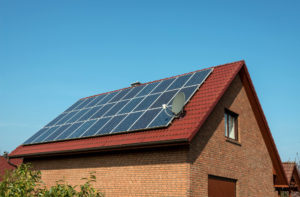Are you feeling stuck in a solar lease contract? Don’t worry; options are available to help you break free and regain control over your solar panel system. In this article, we will guide you through the process of terminating a solar lease contract and provide valuable insights to make the journey smoother.
Leasing solar panels has become a popular option for homeowners to enjoy the benefits of solar energy without the hefty upfront costs. However, circumstances may change, and you might want to get out of a solar lease contract. Whether you’re relocating, unsatisfied with the lease terms, or looking to purchase your solar panel system, we’ve got you covered.
Contents
Key Takeaways
- Understanding your solar lease agreement is crucial, including lease duration, payment terms, performance guarantees, and ownership options.
- Options for terminating a solar lease include early termination clauses, transferring the lease, negotiating a buyout, and seeking legal consultation.
- Effective communication with your solar company, clear documentation, and exploring alternative solutions are vital when terminating a solar lease contract.
Understanding the Solar Lease Agreement
When entering into a solar lease agreement, thoroughly understanding the terms and conditions outlined in the contract is crucial. Here, we will break down the key aspects of a solar lease agreement to ensure you have a comprehensive understanding.
Lease Duration and Payments
The lease duration specifies the length of time you are committed to leasing the solar panel system. Reviewing this section carefully is important, as it will determine how long you will make lease payments. Typically, solar leases range from 10 to 25 years. Take note of the payment schedule and the amount you must pay each month or year.
Performance Guarantee and Maintenance
Solar lease agreements often include a performance guarantee, which ensures that the solar system will produce a certain amount of energy. Understand the terms and conditions related to this guarantee, as it may affect your lease payments or the obligations of the solar provider. Additionally, check if the agreement includes system maintenance and repairs provisions and who is responsible for these tasks.
Insurance and Liability
Review the insurance and liability section of the lease agreement. It should specify whether you, as the lessee, must carry insurance for the solar panel system. Understand the coverage limits, types of insurance required, and any additional costs associated. Additionally, clarify the liability responsibilities in case of damage or accidents related to the solar system.
System Ownership and Purchase Options
In some cases, the solar lease agreement may offer the option to purchase the solar panel system later. This provision can be beneficial if you decide to own the system outright. Take note of any terms, conditions, or pricing arrangements associated with purchasing the system during or after the lease term.
Terms of Termination
The termination clause is a crucial aspect of the lease agreement. It outlines the conditions under which you can terminate the lease before the agreed-upon term ends. Pay attention to the specifics of this clause, such as any associated fees or penalties for early termination. Understanding your rights and obligations about termination will help you navigate the process effectively.
Solar System Removal
When the lease agreement ends, there may be provisions regarding removing the solar panel system. It’s essential to understand who is responsible for removing the system and whether any costs or restoration requirements are associated with the removal. This information will be valuable if you sell your home or transition to a different solar provider.
By thoroughly understanding each aspect of the solar lease agreement, you will be better equipped to make informed decisions regarding termination, ownership options, and any potential obligations or liabilities. If any terms or provisions are unclear, don’t hesitate to seek clarification from the solar company or consult a legal professional specializing in solar lease contracts.

Assessing Your Termination Options
If you need to get out of a solar lease contract, there are several options to consider. Each option has advantages and considerations, so let’s explore them in greater detail.
Early Termination Clause
Some solar lease agreements include an early termination clause that outlines specific conditions under which you can exit the contract before its expiration date. These conditions might include relocation, financial hardship, or other qualifying circumstances. If your lease agreement includes such a clause, review it carefully to understand the requirements and any associated fees or penalties for early termination. Not all agreements have this provision, so checking your specific contract is important.
Transfer or Assignment
Transferring or assigning the lease to another party is an option worth considering. This allows you to find someone willing to take over the solar lease contract, essentially stepping into your shoes as the lessee. Before proceeding with a transfer or assignment, you typically need written consent from your solar provider. They may have specific requirements or qualifications for the new lessee. It’s important to thoroughly understand the transfer process and any associated fees or administrative tasks.
Negotiating a Buyout
If you wish to own the solar panel system outright, negotiating a buyout with the solar company can be a viable option. The remaining lease term, system value, and any associated fees influence the buyout price. Contact your solar provider to express interest in a buyout and initiate negotiations. Consider obtaining quotes from different solar companies to ensure you get a fair and competitive offer. It’s important to carefully evaluate the costs and benefits of buying out the lease, factoring in any remaining lease payments and potential long-term savings from owning the system.
Legal Consultation
Seeking legal advice from an attorney experienced in solar lease contracts can provide valuable guidance throughout the termination process. They can review your lease agreement, assess your situation, and help you understand the legal implications and potential consequences of terminating the contract. A legal professional can also advise you on your rights and obligations and any potential remedies or alternatives available in your jurisdiction. Their expertise will help ensure you approach the termination process confidently and clearly.
When assessing your termination options, weighing the pros and cons of each approach and considering your specific circumstances is crucial. Take the time to evaluate the financial implications, plans, and any potential legal ramifications. Remember, each option may have its requirements and considerations, so it’s essential to do thorough research and, if needed, seek professional advice to make an informed decision.

Communicating with the Solar Company
Effective communication with your solar company is crucial when navigating the process of terminating a solar lease contract. Here are some key considerations and strategies to help you communicate your intentions and concerns.
Documentation and Record-Keeping
Maintaining detailed records of all interactions with the solar company is essential. Keep a record of important information, including dates, names of individuals you speak with, and the content of conversations or correspondence. This documentation will serve as evidence and reference points throughout the termination process. Having accurate records will also help you address any discrepancies or misunderstandings that may arise.
Clarity and Assertiveness
When communicating your desire to terminate the solar lease contract, be clear and assertive in expressing your intentions, clearly state your reasons for terminating the lease and articulate any concerns or issues you have encountered, and be prepared to provide supporting documentation or evidence, if necessary, to support your case, it’s important to remain confident and assertive while maintaining a professional and respectful tone.
Understanding the Solar Company’s Perspective
Seek to understand the solar company’s perspective and constraints. They are vested in maintaining the lease agreement and may have specific policies or procedures. By understanding their position, you can frame your communication to address their concerns while emphasizing your needs and reasons for termination. Finding common ground and mutually beneficial solutions can lead to more productive discussions.
Exploring Alternatives
During the communication process, explore alternatives or compromises that may be acceptable to both parties. For example, if terminating the contract outright is not feasible, inquire about options such as transferring the lease to another party, negotiating a buyout, or modifying the terms of the agreement to better align with your needs. Openly discussing alternative solutions can help foster a more collaborative atmosphere and increase the likelihood of finding a resolution.
Seeking Professional Assistance
If communication with the solar company becomes challenging or unproductive, consider seeking professional assistance. Engaging a mediator or a legal professional experienced in solar lease contracts can help facilitate effective communication and negotiation. They can provide guidance, advocate for your interests, and help find a mutually agreeable resolution. Their expertise can be invaluable, especially when dealing with complex legal or contractual matters.
Maintaining a professional and respectful tone throughout all communication exchanges is essential. Even if you encounter difficulties or challenges, remain calm and composed. Effective communication will help achieve your termination goals and establish a positive relationship with the solar company, which can benefit future interactions or potential resolutions.
Expert Insights From Our Solar Panel Installers About How to Get Out of a Solar Lease Contract
Understanding the terms of your solar lease agreement is crucial. Knowing your rights and obligations can help you navigate the process of terminating the contract without unnecessary stress.
Senior Solar Installer
Effective communication with your solar provider is key. Be clear and assertive about your intentions, and always keep detailed records of all interactions to support your case.
Lead Technician
Consulting a legal professional can provide valuable insights and guidance. They can help you understand the legal implications and explore all available options for terminating your solar lease contract.
Solar Installation Specialist
Experience Solar Excellence with Us!
Trust in Solar Panels Network USA, where our seasoned experts deliver top-quality solar solutions for homes and businesses nationwide. With a legacy of countless successful installations and a commitment to sustainable energy, we’re your reliable partner in the solar journey. Ready for a brighter, eco-friendly future? Call us now at (855) 427-0058 and harness the sun’s power!
Conclusion
Terminating a solar lease contract may seem daunting, but you can successfully navigate this process by understanding your options and taking proactive steps. Thoroughly review your lease agreement, explore early termination clauses, consider transfer or assignment, negotiate a buyout, and seek legal advice if necessary. Effective communication with your solar company will help facilitate a smoother transition.
Going solar is an excellent choice for clean and sustainable energy, but it’s equally important to understand the terms and conditions of your solar lease agreement. By being well-informed and proactive, you can make decisions that align with your changing needs and secure a brighter solar future.
About the Author
Solar Panels Network USA stands at the forefront of solar energy solutions, driven by a team of seasoned solar engineers and energy consultants. With over decades of experience in delivering high-quality solar installations and maintenance, we are committed to promoting sustainable energy through customer-centric, tailored solutions. Our articles reflect this commitment, crafted collaboratively by experts to provide accurate, up-to-date insights into solar technology, ensuring our readers are well-informed and empowered in their solar energy decisions.

